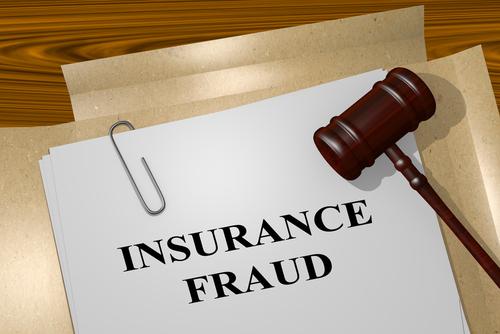 Insurance fraud is a crime of dishonesty. Any time a person makes a false statement in order to get an insurance company to make payments that they don't really owe, it can be considered insurance fraud. Florida law 817.234 makes it a crime to make false or fraudulent insurance claims.
Insurance fraud is a crime of dishonesty. Any time a person makes a false statement in order to get an insurance company to make payments that they don't really owe, it can be considered insurance fraud. Florida law 817.234 makes it a crime to make false or fraudulent insurance claims.
Fraud Doesn't Happen By Accident
There are a number of different ways that the law prohibits dishonesty towards an insurance company. As a Florida insurance fraud defense lawyer can tell you, the one thing that they all have in common is that the person who makes the false representation must do so with the purpose of hurting or deceiving the insurance company. That is, fraud doesn't happen by mistake. The person charged must make the false statements with the purpose of getting away with the dishonesty at the expense of the insurance company.
Examples of Insurance Fraud
Not all insurance fraud involves insurance customers directly making false claims. Concealing information from the insurance company can amount to fraud, too. Fraud can also occur when a health care provider submits false claims to an insurance company. Even an attorney who knowingly assists another person with committing insurance fraud is also guilty. Arson is another form of insurance fraud.
Penalties
The penalties for insurance fraud vary based on the amount of money that's involved in the fraud. For amounts more than $100,000, the offense is a first-degree felony. Fraud involving more than $20,000 but less than $100,000 is a second-degree felony, and fraud less than $20,000 is a third-degree felony.
If you're a health care professional and you're convicted of personal injury protection insurance policy fraud, you can lose your medical license. You can also lose the ability to accept insurance in your practice for a period of time. This is in addition to all of the other possible penalties for conviction.
Costs
A Florida insurance fraud defense lawyer can help you know what to expect in the event that you're facing fraud charges. One possibility is that you have to pay restitution to the insurance company. This can include paying back any incorrect payments as well as reimbursing the insurance company for investigative costs and even attorney's fees. If you're facing these types of charges, contact our experienced attorneys from Musca Law to evaluate your case and make a game plan for your best defense.
Call us today to learn more about your potential defense.
